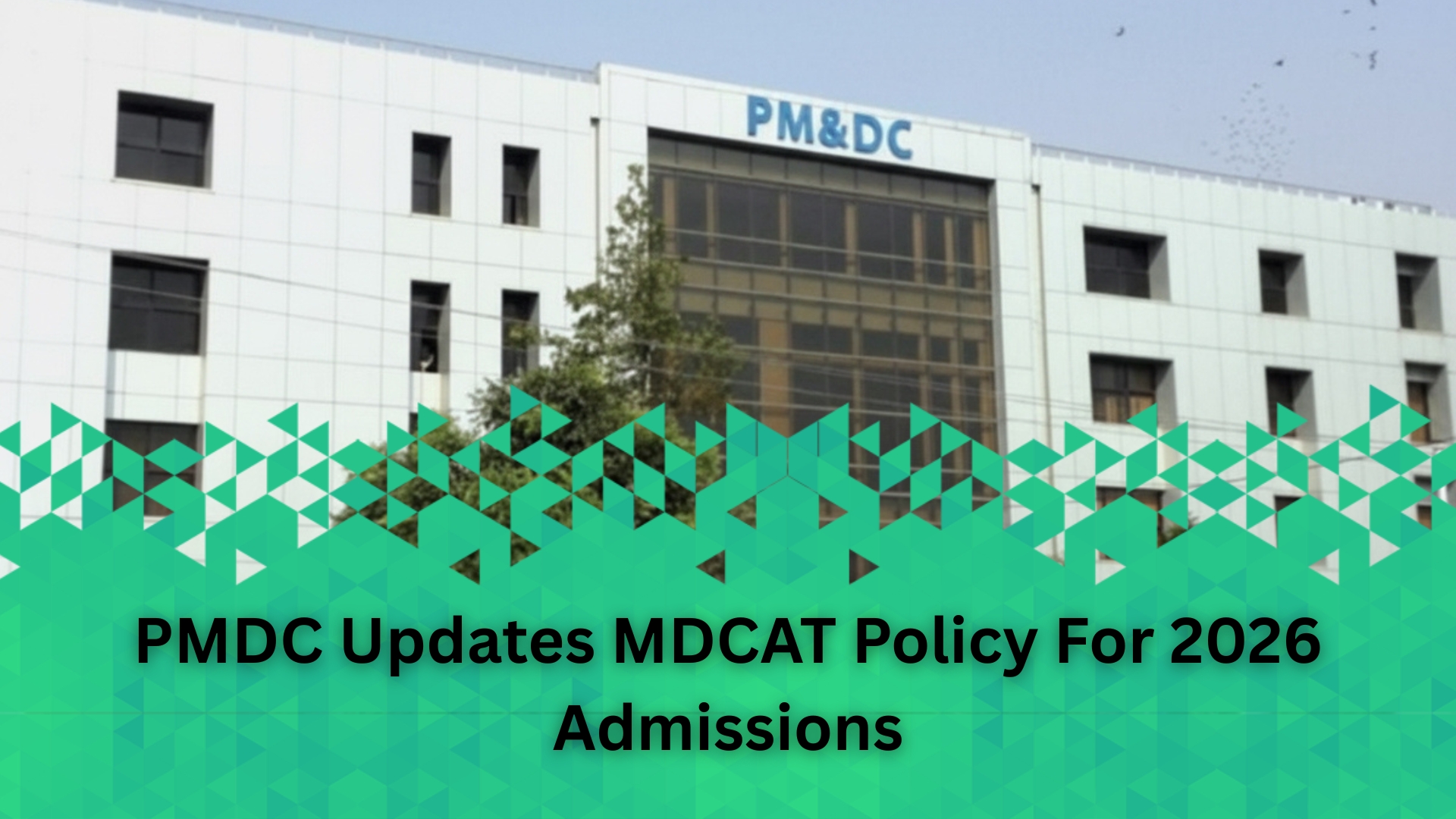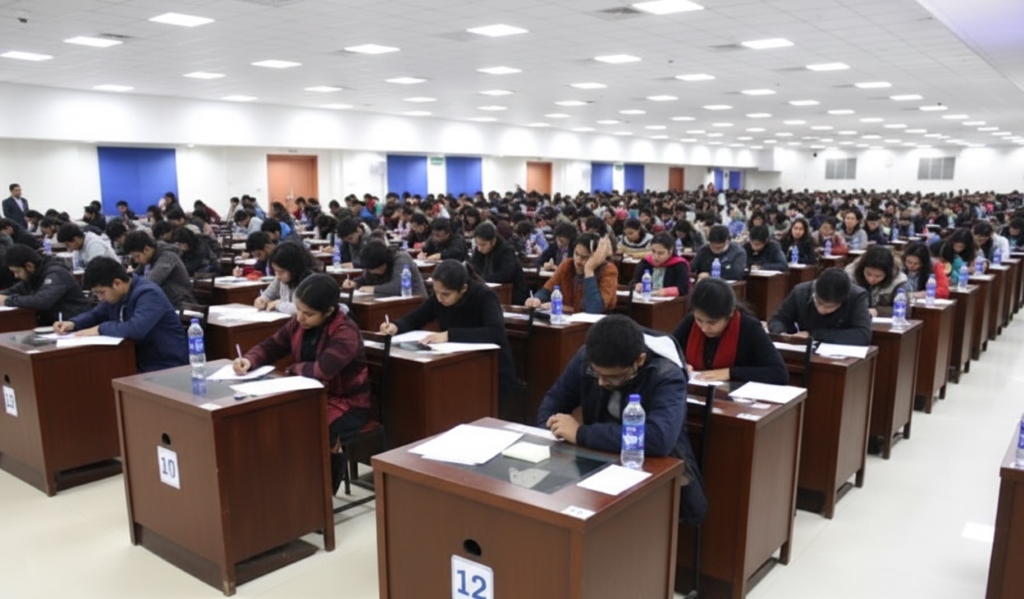
PMDC Updates MDCAT Policy For 2026 Admissions
The Pakistan Medical and Dental Council (PMDC) has officially changed the Medical and Dental College Admission test (MDCAT) standards and examination timetable of admission to MBBS and BDS programs beginning with the 2026 academic year. The reforms, which are to be announced after consulting universities and admission bodies, will be aimed at making sure that transparency, selection based on merit and a standardized evaluation is achieved in all provinces. Talking to The Express Tribune, the Director of Admissions of Jinnah Sindh medical university (JSMU), Dr. Fatima Abid, pointed out that the new regulations are a sign of PMDC dedication to enhancing the quality of medical education and fairness in in admissions.
High Eligibility and Provincial Requirement
Among the most important modifications, the new eligibility level among the MDCAT applicants should be mentioned. Since 2026 the applicants will be required to score a minimum of 65 percent in FSc (Pre-Medical) or a similar certificate in order to take the test. In the past, this was lowered to 60 percent. This revision seeks to improve the standard of academics and make sure that not all students are admired in medical and dental schools, only those that are well prepared.
Moreover, PMDC has also come up with provincial alignment policy, and this policy requires the applicant to have matriculation, intermediate, and domicile certificate of the same province where they intend to take the MDCAT. Dr. Abid writes that this action will ease the administrative coordination contact and help to decrease the inter-provincial seat conflicts. It will also increase equity in regional seat allocation and surveillance whereby opportunities are even among local candidates.
Curriculum and Standard Framework
The MDCAT 2026 has since taken the new syllabus comprising of Biology, Chemistry, Physics, English and Logical Reasoning. The test will be in the form of a 180 item (MCQS) test and there will be no negative marking. This type of organization is designed to measure not only conceptual knowledge, but also analytical skill, and is designed to make students aim at understanding and not memorizing.
Dr. Abid affirmed that PMDC has instructed the various test examining bodies to develop test papers in a standardized national system, with a centralized question bank. This action is one of the bigger attempts to make sure that the level of difficulty and the coverage of the material is the same in all the provinces. The centralized system will remove differences in test standard and will facilitate fairness of each candidate, irrespective of his or her regional background.
Time of Exam and Exam Security
The PMDC has set the MDCAT 2026 test date, which is set to be taken between October 5th to 26th, 2025, in various Pakistan-based centers. This is a prolonged examination time that will be used to cater to the high number of candidates avoiding crowding at examination centers.
In order to enhance the credibility of the process, the process has also been equipped with biometric attendance and digital ID verification systems in all of the participating centers. Such technological improvements will go a long way in avoiding impersonation and other malpractices that once compromised exam integrity. All candidates shall be registered using real-time biometric matching which shall provide high transparency to the entry as well as exit.

Increased Paper Security and Leaks
In years past, due to the scandals of paper leaks and anomalies, new electronic protection has been provided by the PMDC. The method of distributing exam papers will also be changed by introducing secure encryption systems, the printing and dispatching process will also be tracked by a closed digital network. This is an encrypted process which makes sure that all papers are inaccessible and unmodifiable prior to the commencement of the test.
Dr. Fatima Abid promised that these will help MDCAT 2026 to be the safest and the most visible examination so far. The council has also formed a special monitoring cell to monitor the implementation of these protocols and act directly in case of any irregularity.
Response by the People and Prospect
Students and educators have reacted differently to the updated policy. Some like the greater transparency and fairness whereas others have cited a more demanding eligibility requirement saying it can restrict access to students in the countryside. However, PMDC does not deny the fact that the changes are needed to improve the standards of medical education and bring them to the international level.
PMDC will also have a fine-grained MDCAT 2026 syllabus and practice guide which will help the students prepare well under the new format in the coming months. Examination personnel and provincial coordinators will also be taken through training to facilitate a smooth implementation.
Through these reforms, PMDC will regain the people confidence in admission system and a fair and merit based avenue to aspiring doctors and dentists in entire Pakistan. With the country gearing up to have the MDCAT 2026 session, students are advised to be on top of the program through official announcements of the PMDC and start preparing early under the revised syllabus.















